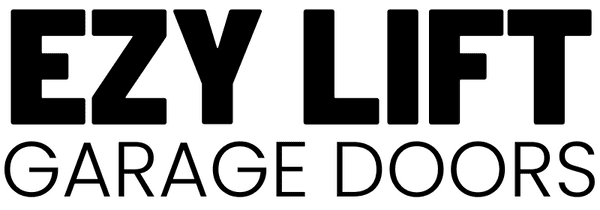In the dynamic world of the Australian housing market, homeowners and investors alike constantly seek strategies for property investment returns that stand the test of time. But amidst renovations and stylistic upgrades, how much equity does a practical addition like a garage truly add to your home? While the quick gloss of a fresh paint job or a trendy kitchen revamp often takes the spotlight, it’s the functional enhancements like a garage that silently promise an equity boost in property.
Evaluating the tangible benefits against the costs, every homeowner wants to know: Will building a garage lead to a substantial home value increase, or is the investment merely a cosmetic enhancement? It’s no secret that a garage can cater to the Australian lifestyle, offering a secure haven for vehicles, additional appliances, and even doubling as a workshop space. But with the Australian real estate market’s ever-changing tides, does a garage installation signify a wise investment, or is it just another space that goes unnoticed by potential buyers?
Notably, experts point to a significant figure: building a spacious, enclosed garage could potentially elevate your property’s value by an average of $20,000 to $30,000. This number becomes even more impressive for a double garage, with an increase of up to $50,000 for a typical four-bedroom home. But what exactly underpins these figures, and how does the inclusion of a garage translate into an equity boost in property in Australia?
For homeowners in Melbourne, where the preference for driving reigns supreme and parking is at a premium, a home garage can make all the difference. Similarly, for investors, properties with garages promise not only higher rental income but also improved liquidity in the sales market. Whether you’re looking to add a carport or a fully outfitted garage, understanding the nuances of how such an addition affects your equity is crucial in making an informed decision.
With this in mind, we delve into the nitty-gritty of property investment returns and unpack the true impact of garages on equity in the Australian housing market. From expert valuation insights to market trends, we explore how your garage is not just a storage solution but an investment in your home’s future.
Understanding Home Equity and Property Value in Australia
In today’s dynamic real estate market, Australian real estate insights reveal that understanding the nuances of property equity calculation and market value appreciation is crucial for homeowners and investors alike. This section discusses the fundamental concepts of home equity, the factors impacting property values, and the trends influencing equity growth in the Australian market.
Defining Home Equity
At its core, home equity refers to the current value of a property minus any outstanding mortgage or loans against it. For example, if a property is valued at $350,000 and $300,000 is owed on the mortgage, the home equity amounts to $50,000. This financial metric is vital as it represents the portion of the property that the homeowner truly “owns.”
Factors Influencing Property Value
- Location: Proximity to amenities, quality of local schools, and overall desirability of the neighborhood.
- Property Condition: Newer properties or those that have been well-maintained tend to fetch a higher market value.
- Market Demand: High demand in the market increases property values due to competitive buyer interest.
- Enhancements: Upgrades and renovations, such as kitchen and bathroom remodels, that improve the functional and aesthetic appeal of the property.
Market Trends and Equity Growth
Market trends significantly affect the rate of market value appreciation. In Australia, trends such as increased demand for multi-functional spaces and eco-friendly homes are driving property values upward. Strategic home improvements that align with these market preferences can lead to considerable equity growth. Furthermore, mechanisms like additional repayments and refinancing can also expedite equity accumulation, providing homeowners with more financial leverage for future investments.
For homeowners looking to capitalize on their property investment, staying informed about current trends and understanding how to navigate the property equity calculation process is essential. By making informed decisions about property improvements and financial strategies, property owners can enhance their market position and maximize equity growth.
Is it worth having a garage? Analysing the Benefits
Considering the significant home addition investment, adding a garage to one’s house is not merely about making more space—it’s about enhancing property functionality and value. The decision to incorporate a garage offers manifold long-term garage storage benefits and car protection advantages, aspects critical to homeowners in Australia.
- Car Protection: A garage serves as a safeguard for vehicles, protecting them from environmental elements such as sun, hail, and rain, which can extensively damage a vehicle’s appearance and function. Besides, having a secured space deters theft and vandalism, ensuring that your car stays in pristine condition.
- Storage Solutions: The versatility of a garage extends beyond housing cars—it provides abundant space for storage. From gardening tools and sports equipment to seasonal decorations, garages offer organized storage solutions that declutter homes and promote efficiency.
- Investment Returns: From an investment perspective, constructing a garage can significantly increase property value. A HomeAdvisor study indicates that adding a garage in Australia can raise property value between $12,750 and $33,150, with a return on investment of about 75% to 85% when the house is sold.
Financially, homeowners can access multiple financing avenues to fund their garage addition. Options such as home equity loans and personal loans are available, providing flexibility depending on the property’s value and the homeowner’s credit. Those interested in understanding these options could refer to this Guide on Financing a Detached Structure, offering a comprehensive overview of available financial utilities.
Moreover, the aspect of car protection advantages translates into reduced maintenance and repair costs, something car enthusiasts and daily drivers can both appreciate. A garage ensures your vehicle is ready to use, no matter the weather—eliminating the need for early morning defrosting or emergency maintenance due to weather-caused damage.
Focusing on the garage door itself, a critical factor in the efficacy of a garage’s protection and storage capabilities, the costs vary. Prospective garage owners should consider the type of door, as the price ranges can significantly impact upfront investment. Details about the costs involved can be explored through How Much Do Garage Roller Doors Cost in North, which elaborates on varying prices based on features and installation services.

In conclusion, a garage is more than just a home addition investment; it’s an enhancement to your day-to-day life and financial health. With the benefits ranging from improved car longevity to enhanced storage and increased property value, the investment in building a garage clearly holds substantial tangible and intangible returns.
How much equity does building a garage add
When it comes to home improvements, garages are more than just a place to park your car; they are a strategic investment that can significantly boost property equity. This contribution to a home’s market value is backed by statistical evidence showing a consistent rise in returns for homeowners who opt for garage additions. In Australia, expert property evaluations affirm the potential of a sixty-four to eighty-one percent return on investment, which translates into an appreciable $20,000 to $35,000 increase in home value.
Expert Valuation Insights
Expert valuations extend beyond mere numbers; they encompass a deep understanding of current market dynamics and buyer preferences. Attached garages, for instance, tend to offer a more favorable return on investment due to their cost-effectiveness and convenience. Detached garages, on the other hand, cater brilliantly to properties with limited space or those seeking added privacy, while doubling up on functionality and potentially enhancing the property’s sound insulation.
Real Estate Market Assessments
Insights drawn from real estate market assessments corroborate the impact of garage construction on home equity, emphasizing that both additional square footage and functionality resonate profoundly with buyers. Garages that accommodate two cars are more sought-after, reflecting a higher market demand which in turn can lead to a considerable equity increase. Additional features such as custom shelving, climate control, or a multi-use layout can further accentuate this value.
Garage Types and Their Impact on Equity
Understanding the diversity among garage types is critical when measuring the potential uplift in a property’s equity. Innovatively designed spaces such as those outlined in Australasian industry guides invite not only utility but also an aesthetic appeal that can significantly influence a home’s selling points. Opting for a garage design that complements your property’s character, paired with practical elements, often results in an optimised investment for homeowners. The goal should always be to blend functionality with a design that enhances the overall living experience — a principle that is echoed by garage doors that display robustness and visual appeal, characteristic of popular choices in the Australian market.
FAQ
Q: How much equity does building a garage add in Australia?
A: In the Australian housing market, building a garage can be a significant property investment with returns that may boost a home’s equity by approximately ,000 to ,000. This value addition is contingent on the garage type and its appeal to potential buyers.
Q: What is home equity and how is it calculated in the Australian market?
A: Home equity is the financial value you own in your property, calculated by subtracting any mortgage or loan balances from the property’s current market value. As you pay down your mortgage or your property’s value appreciates due to market conditions or improvements like garages, your home equity increases.
Q: What factors influence property value in Australia?
A: Property value in Australia is influenced by a range of factors including location, the condition of the property, market demand, and the presence of value-adding features such as a renovated kitchen, a well-maintained garden, or the inclusion of a garage or shed.
Q: How do market trends affect equity growth in the Australian real estate market?
A: Market trends in Australia, such as the demand for multifunctional spaces and enhanced security features like garages, significantly contribute to equity growth. As preferences for outdoor living and convenient, secure parking spaces increase, properties with garages tend to appreciate in value faster.
Q: Is it worth having a garage in terms of storage and protection?
A: Absolutely. Garages offer substantial storage benefits and car protection advantages, safeguarding vehicles from environmental elements and potential theft. This added functionality not only serves the homeowner’s current needs but also contributes to the property’s overall appeal and market value.
Q: How do garages contribute to an increase in home equity from an expert valuation standpoint?
A: Expert valuation insights confirm that a well-designed garage can visibly enhance a property’s equity, with potential increases ranging between ,000 to ,000. This is based on the added practicality and aesthetic appeal a garage brings, aligning with homebuyer expectations in the market.
Q: What real estate market assessments should be considered when building a garage?
A: When contemplating the construction of a garage, homeowners should consider market assessments indicating that garages enhance lifestyle convenience, increase security, and are highly valued by potential buyers, all of which can drive up a property’s equity.
Q: Do different garage types impact a home’s equity in varying ways?
A: Yes, the impact of a garage on home equity can differ based on its type. Enclosed garages designed for multiple uses, including climate control, can significantly increase property value. Conversely, a basic carport may offer less equity boost but still offers better vehicle protection than no garage at all.
Source Links
- 10 Best Ways To Add Equity To Your Home
- How Much Value Does a Shed Add to a House – Spinifex Sheds
- The value a garage adds to a property – Crest Property Investments
- How To Build Equity In Your Home – loans.com.au
- Smart Choices to Improve and Increase Home Value
- Considering Resale Value When Designing Your New Melbourne Home
- Boost Home Value with Adding a Garage
- Garage conversion and house value
- Do Garages Add Value to a Home? Costs, Attached vs. Detached
- How much does a shop build add to property value?
- How much does a garage add to home value?

